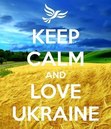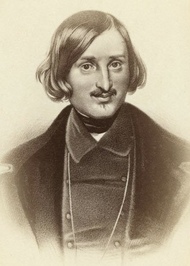Nikolai Gogol
Born
in Sorochyntsi, Poltava guberniya, Russian Empire, Ukraine
March 31, 1809
Died
March 04, 1852
Genre
Influences
Alexander Pushkin, Miguel de Cervantes, Ukrainian Folklore, Dymytrii T
...more

|
Dead Souls
—
published
1842
—
2085 editions
|
|

|
The Overcoat
—
published
1842
—
415 editions
|
|

|
Diary of a Madman and Other Stories
—
published
1835
—
483 editions
|
|

|
The Inspector General
—
published
1835
—
486 editions
|
|

|
The Collected Tales of Nikolai Gogol
by
—
published
1835
—
44 editions
|
|

|
The Nose
—
published
1836
—
420 editions
|
|

|
The Overcoat and Other Short Stories
—
published
1836
—
153 editions
|
|

|
Taras Bulba
—
published
1835
—
756 editions
|
|

|
Village Evenings Near Dikanka and Mirgorod
by |
|

|
I racconti di Pietroburgo
by
—
published
1842
—
234 editions
|
|
Related News
The book gods, in their infinite kindness, have built second chances into the very structure of the modern distribution business. If you miss...
53 likes · 0 comments
“I am fated to journey hand in hand with my strange heroes and to survey the surging immensity of life, to survey it through the laughter that all can see and through the tears unseen and unknown by anyone.”
―
―
“However stupid a fool's words may be, they are sometimes enough to confound an intelligent man.”
― Dead Souls
― Dead Souls
Polls

Which of the following works of the Ukrainian culture should be translated into English primarily?
1) " History of the Rus' or Little Russia" (a historical and political essay);
2) "Three Leaves Beyond the Window" by Valerii Shevchuk (a novel);
3) "From Lectures on the Theory of Literature: The Fable, the Adage, the Proverb" by Aleksander Potebnja (a study, series of lectures);
4) "Mary" by Taras Shevchenko (an apocryphal poem)
5) None of the above.
6) Your variant.
1) " History of the Rus' or Little Russia" (a historical and political essay);
2) "Three Leaves Beyond the Window" by Valerii Shevchuk (a novel);
3) "From Lectures on the Theory of Literature: The Fable, the Adage, the Proverb" by Aleksander Potebnja (a study, series of lectures);
4) "Mary" by Taras Shevchenko (an apocryphal poem)
5) None of the above.
6) Your variant.
The image of Mary in Shevchenko's poem "Maria" (Mary, 1859) has not much in common with theological image of the Virgin. The biblical story is the only external drive for fully independent expression of the poet.
According to Ivan Franko and Boris Pasternak, who's translated the poem into Russian, it is the best Shevchenko's work.
According to Ivan Franko and Boris Pasternak, who's translated the poem into Russian, it is the best Shevchenko's work.
History of the Rus' or Little Russia (Russian: Исторія Русовъ, или Малой Россіи) or History of the Rus' (Ukrainian: Історія русів) is a book about the history of the Rus' people (Ruthenians) and their state (Ruthenia or Little Russia) from ancient times up to 1769. The book was written as a political essay in the end of the 18th century by anonymous author and firstly published in 1846 in Moscow in Russian language by Osyp Bodianski.
History of the Rus focuses on two ideas. Firstly, it emphasize the historical difference and antagonism between Rus' (Ukraine) and Muscovy (Russia). Secondly, it accentuate on the historical continuity of the Rus' people (Ukrainians) from the medieval times of Kievan Rus' till the early modern Cossack state.
Despite numerous factual mistakes and exaggerations, History of the Rus' had a great impact on Ukrainian scholarship, works of prominent Ukrainian writers like Nikolai Gogol and Taras Shevchenko, and formation of Ukrainian national discourse of the 19th century.
History of the Rus focuses on two ideas. Firstly, it emphasize the historical difference and antagonism between Rus' (Ukraine) and Muscovy (Russia). Secondly, it accentuate on the historical continuity of the Rus' people (Ukrainians) from the medieval times of Kievan Rus' till the early modern Cossack state.
Despite numerous factual mistakes and exaggerations, History of the Rus' had a great impact on Ukrainian scholarship, works of prominent Ukrainian writers like Nikolai Gogol and Taras Shevchenko, and formation of Ukrainian national discourse of the 19th century.
Valerii Shevchuk's second major prose work Три листки за вікном (Three Leaves Beyond the Window, 1986), a three-part novel that traced the secularization of Ukraine and spiritual decay of its intellectual elite through the 17th, 18th, and 19th century. Recognized as a exemplary literary work of the glasnost period, this novel earned Shevchuk the Shevchenko Prize in 1988. A film based on one of the parts of the novel and entitled "Диво в краю забуття" (A Wonderful Event in the Land of Forgetfulness) was produced in 1991 by Natalia Motuzko.
4
(write-in)
None of the above
2
(write-in)
According to Aleksander Potebnja's theory, literature is a hierarchy of genres; the simplest ones (the proverb, riddle, and fable) directly recall or renew the word's internal form, and the other genres do so in a more complicated, sometimes hardly detectable, way through a complex system of subjective (in poetry) or seemingly objective (in the novel) images. Potebnia's principal work on this subject were published posthumously: Iz Lekcii Po Teorii Slovesnosti: Basnja; Poslovica; Pogovorka (From Lectures on the Theory of Literature: The Fable, the Adage, the Proverb, 1894).
Topics Mentioning This Author
| topics | posts | views | last activity | |
|---|---|---|---|---|
| The Seasonal Read...: 10.10 (FROM RUSSIA WITH LOVE) | 28 | 325 | Jan 10, 2010 08:52PM | |
The Seasonal Read...:
 5.3 (S.P.R.I.N.G)
5.3 (S.P.R.I.N.G)
|
29 | 204 | Feb 25, 2010 11:42PM | |
| Romance Readers R...: Read the Month Challenge: April | 223 | 258 | May 05, 2010 12:59AM | |
| Romance Readers R...: Jane in France's Reading List | 128 | 359 | May 10, 2010 11:38PM | |
| Romance Readers R...: Read-The-Season Challenge (Spring) | 514 | 513 | Jul 03, 2010 08:34PM | |
The Seasonal Read...:
 Fall Challenge 2010 Completed Tasks (do NOT delete any posts in this thread)
Fall Challenge 2010 Completed Tasks (do NOT delete any posts in this thread)
|
2785 | 1192 | Dec 01, 2010 10:03AM | |
Reading with Style:
 FA10 RwS Completed Tasks
FA10 RwS Completed Tasks
|
927 | 421 | Dec 01, 2010 07:41PM |







































